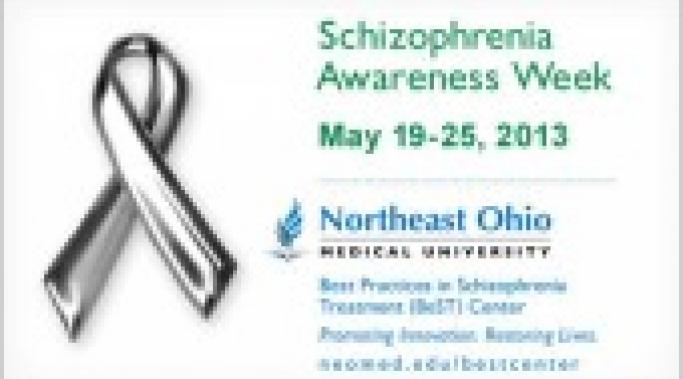Like a film of cloudiness that filters the sunlight on a hazy day, my son Ben’s schizophrenia obscures some of the qualities that make him so dear. Without schizophrenia treatment, his abilities to connect, care, feel joy and share love seem almost impossible to see. With treatment, they are closer to the surface – but the 25% of him that is still obscured is sometimes heartbreaking, no matter how grateful we are that he is functional and mostly present. The presence of these clouds is lighter then, more like a haze than the thick formations when he is fully symptomatic. Still, Ben’s best qualities often seem dulled by that haze -and I miss the open, joyful child I used to know.
But sometimes, even the haze breaks – for an amazing moment – and I get a visit from Ben’s best self. Yesterday, I got a glimpse of his empathy, one of the qualities that get obscured as a negative symptom of schizophrenia.
It happened because of a tin of lip balm and it gave me a moment of joy and hope.
Why We Must Keep Developing New Schizophrenia Treatments
Mental Illness in the Family
This month we are living with fingers crossed.
Ben has had a close call, once again, with his symptoms of schizophrenia. We don't know how it happened, but somehow in late May Ben's med levels began to drop. We saw the usual warning signs (agitation, self-talk, lack of focus, too-forced interactions, loud and constant music in his iPod, lack of desire to engage, etc.) and yet he kept insisting he was "fine" and "nothing is wrong."
But we knew. And we ordered tests. The test result? Med levels near to zero.
So we took new precautions, which unfortunately must include a lockbox for the meds. It feels like we have gone backwards in the quest for Ben's independence. And ours.
Last year, NAMI interviewed me for a story about my family's experience with mental illness. In it, Jessica Edwards asked me about emotional survival, along with other lessons in our story so far. This is an excerpt from the interview, reprinted here because people have told me they found comfort in its advice.
A Family's Journey with Schizophrenia
NAMI: You discuss some really painful and difficult times in your story. What was the key thing that got you through those struggles?
Kaye: These two mantras helped me a tremendous amount. They remind me to stay grateful in the moment, and stay in a place of acceptance and hope:
It is what it is, now what? - and
Whatever happens, we’ll handle it somehow.
Latest from Perez Hilton, the National Enquirer and other gossip (oh, excuse me, entertainment news) sites: "Is Amanda Bynes Schizophrenic?"
Ignoring for the moment how much we hate that term "schizophrenic", let's get to the heart of the reported issue.
Amanda is not doing well, and her parents are worried.
How well I know the feeling.
Contrary to the popular saying, you don't have to be careful what you wish for. Wishes are dreams, and it's nice to dream. However, do be careful about what you expect. Unrealistic expectations can be the root of unhappiness with the reality of your life.
My son, Ben, who lives with paranoid schizophrenia, used to seem lost to us almost completely...maybe 20% of him was occasionally glimpsed by us behind his symptoms. Now, with treatment for schizophrenia, he is back with us - about 65-75%. Depends on the day. But I'll take it.
The past few weeks have been a whirlwind of wonderful interaction with people in treatment for mental illness and those who are part of their community of recovery. I will write more about the stories, struggles and solutions I've heard in Louisiana, Michigan, Tennessee, and (soon) Ohio, but right now I want to share the wonderful list from the BeST (Best Practices in Schizophrenia Treatment) Center at the Northeast Ohio Medical University. I'll be meeting some families there on Thursday before I provide the keynote for NAMI Summit County's Annual Dinner, and I can't wait.
Meanwhile, I found this list of tips on their website, and it's a great summary of some of the tips you can find here on HealthyPlace.com. As Schizophrenia Awareness week approaches, families need all the tips we can get - and to know we are not alone in this fight to aid awareness and advocate.
Early Detection is important in schizophrenia, and the more families and practitioners I meet, the more I am convinced that "Early education and support" matters a great deal for families, so they can become prepared to help as best they can. Otherwise, the confusion and frustration can result in families who end up just giving in to the frustration. So, in that spirit and with thanks, I share this list.
So, maybe I was wrong. Sometimes you just don't know.
Yesterday Ben seemed a little bit off. We know the signs. He tries too hard to be "sociable"...like asking "how was your day?" three times in the space of ten minutes. His smile seems too forced, his attention to some tasks too focused. He seems to be mumbling under his breath to - to whom? When I ask, he tells me he's just thinking about a song.
Insert sigh here. What might come next? And what can I do?
Meds, or Mood?
In the past, moods like this were usually precursors to worsening symptoms, and a sign that Ben was off his medications. But now...now we ourselves supervise the twice-daily regime, and Ben has been remarkably relapse-free for over 18 months.
Still - something's up. Something is not right. But what? And why?
My son Ben spent his Saturday afternoon playing basketball with 3 friends.
If you, too, have a child or other relative living with mental illness, you know that this is a small miracle - or maybe not so small. Ben's social brain function has been among the victims of his schizophrenia. But it's possible that it can come back - and, in some ways, it has begun to.
"Are you taking your meds, sweetie?" asks Hannah's Dad, juggling the cell phone as he shops in the hardware store.
"Of course I'm taking my meds!"shouts Hannah, as she compulsively counts to 8 in every imaginable way (Hannah has OCD), hides from life under her comforter, and tries to cope with the pain she has inflicted upon herself with a Q-Tip. (Hard to explain. Gotta see the show.)
Of course, Hannah is clearly not taking her meds.
Shoulda, Coulda, Woulda...
Those of us dealing with mental illness in our families can't help but occasionally compare where we are to "what might have been." It's human nature, I suppose. While comparison can be inspiring, it can also lead to needless disappointment. And we have had quite enough of that, thank you.
In my most Zen frame of mind, I am happy for others whose children are on their way to six-figure-incomes and a life with a clear timetable for success, love, and growth. In my not-so-Zen moments, I allow myself that twinge of jealousy. For my son Ben can no more help his schizophrenia than I can stop a blizzard.
My mantra for returning to Zennish state, after processing human emotion:
"It is what it is."
But that is not so easy when the human emotion is grief.









